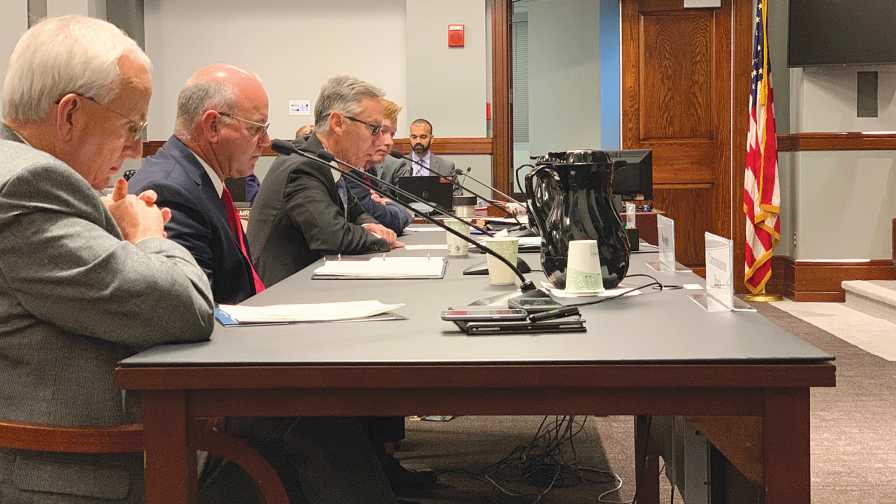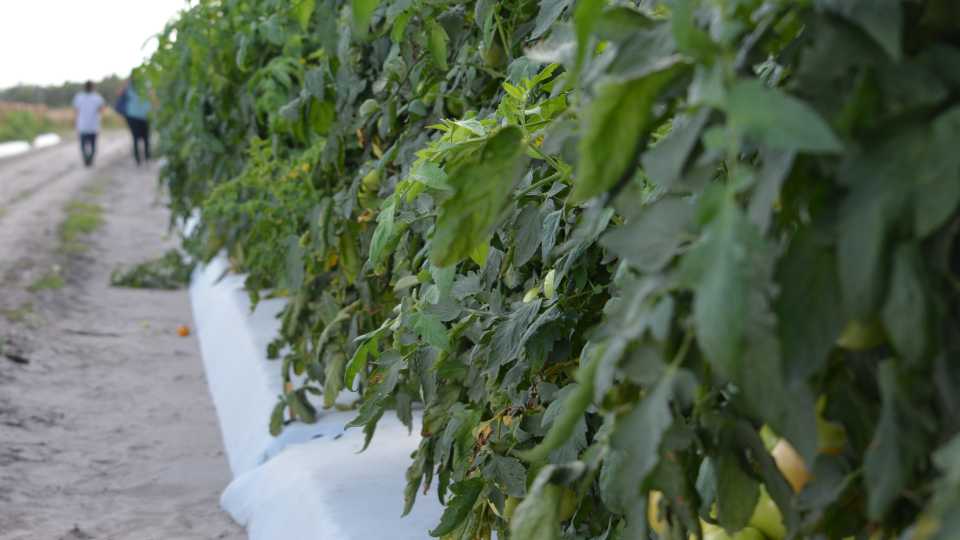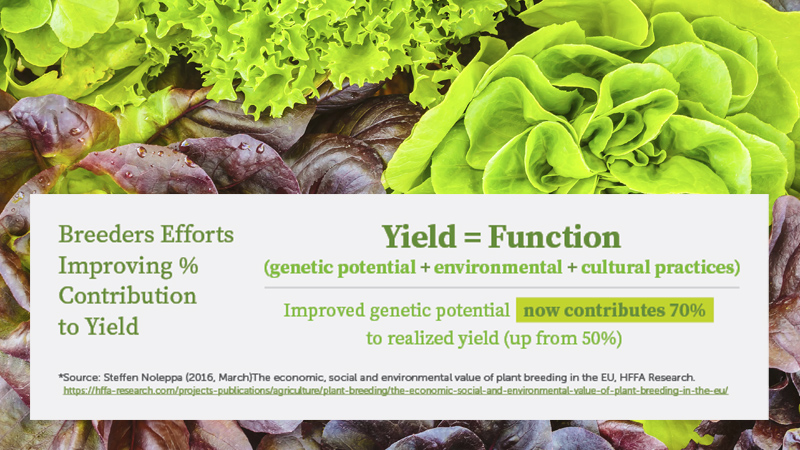25 Years and Counting of Trade Imbalance for Florida Growers

Retiring FFVA President Mike Stuart (center) was among the Florida representatives testifying on the impact of Mexican produce imports before the U.S. International Trade Commission in November.
Photo courtesy of FFVA
Prior to President Trump signing the NAFTA replacement trade deal dubbed the United States-Mexico-Canada Agreement (USMCA) at the G20 Summit in Buenos Aires, organizations and leaders representing Florida’s specialty crop sector sounded off on the continuation of unfair advantages extended to Mexico. Under NAFTA and the forthcoming USMCA, these policies have had devastating impacts on Florida growers.
Mike Stuart, President of the Florida Fruit and Vegetable Association (FFVA) traveled to Washington, DC, in November to testify before the U.S. International Trade Commission (ITC) on the USMCA’s potential impacts. The trip would be among his last visits to Washington in that capacity, as Stuart retired last month after 26 years leading FFVA. Stuart was joined by other specialty crop representatives from Florida and Georgia in providing testimony.
Clear Evidence of Harm
Stuart testified that every year since NAFTA took effect, Mexico has made larger and larger gains into the U.S. fresh fruits and vegetables market, while Florida’s production volumes have dropped at a proportional rate. He noted that, despite previous administrations’ efforts to address the unfair trade practices, Florida growers have not been granted any relief. In its current form, the USMCA will not address these challenges. The evidence of these inequities is clear.
Mexico’s agricultural shipments to the U.S. have increased at a rate of approximately $2 billion per year, and the specialty crop sector accounts for a large share of that growth. In 2017, total U.S. imports of Mexican fruits and vegetables came to nearly $12 billion.
“Because the Southeast produce industry shares the same growing season as Mexico, our producers have been the front-line casualties of Mexico’s fruit and vegetable growth,” Stuart noted. “To take a few examples, while U.S. imports of Mexican tomatoes have increased three-fold since 2000, Florida production has dropped by almost 50% over that period. Likewise, while U.S. imports of Mexican bell peppers have grown three-fold since 2000, our bell pepper production has declined by 35%. You can look at any one of the other important state produce sectors — from strawberries, to blueberries, to watermelon, and others — and see similar trends.”
Mexico’s extensive subsidy program has fueled this unequal balance in trade. The country’s new President Andres Manuel Lopez Obrador has no intention of dialing back these programs. In fact, he has pledged government support to plant 1 million new hectares of fruit.
“Elaborate Mexican aid programs, provided since at least 2001, have supported virtually every dimension of fruit and vegetable production in Mexico,” Stuart continued. “Government capital investments, often upwards of $200 million a year, have increased Mexico’s protected agriculture by a multiple of 52 since 2000, and have accelerated the modernization of that industry’s irrigation technology, agricultural equipment, and infrastructure at rates that only large government monies can accomplish.”
No Relief in Sight
The influx of produce from Mexico has forced Florida and Southeast producers to often sell their crops at a loss or to abandon them. The antidumping and countervailing duty actions under NAFTA were not structured to redress injury during limited marketing periods like those for perishable crops. Stuart added USMCA appears not to address this problem.
“Although trade promotion authority clearly requires that all new trade deals redress our problem by eliminating practices that harm perishable products and by fixing our import mechanisms to be responsive to perishable and seasonal produce, USMCA, as now drafted, has yet to deliver on that instruction,” he said.
After the testimony, Stuart noted: “Relief will have to come from either administrative or Congressional action, or both. Our hope with the ITC is that they will reference the likelihood that damage to our industry will accelerate under USMCA without access to effective trade remedy laws.”

Photo by Paul Rusnak
Time to Terminate Tomato Suspension Agreement
In another action related to Mexico’s unfair trade practices, the Florida Tomato Exchange (FTE) has requested the U.S. Department of Commerce terminate its Tomato Suspension Agreement with the Mexican tomato industry. The agreement was meant to protect the U.S. tomato industry from unfair Mexican trade practices but has failed to do so.
The current suspension agreement has been in effect since 2013, and the previous agreement was in place from 1996 to 2013. The agreements have “suspended” the U.S. government’s antidumping investigation of Mexican tomatoes. But, the agreements have been difficult to enforce, and loopholes have allowed Mexico to make massive inroads into the U.S. tomato market As a result, hundreds of U.S. tomato growers have been forced out of business, with Florida taking a particularly hard hit.
In a news release, the FTE noted: Strong enforcement of U.S. trade laws is critical to the survival of American companies, farmers, and workers that are being injured by dumped and subsidized imports. Because the 2013 agreement has failed, and the Mexican industry has not showed a willingness to meaningfully negotiate, the only path available for the U.S. tomato industry to protect itself against Mexican dumping is for the Commerce Department to terminate the agreement.
According to Michael Schadler, Executive Vice President of the FTE, they hope to hear back from the Commerce Department soon, but there is no statutory timeline for their response. If the department terminates the agreement, the antidumping investigation would resume and take about six months to complete.
“The investigation would be conducted by the Commerce Department and the International Trade Commission,” Schadler said. “If the investigation finds that dumping has injured the domestic industry, a ‘dumping order’ would go into place with a to-be-determined cash deposit requirement on imports of Mexican tomatoes.”
He added this would not necessarily be the best-case scenario, because U.S. growers want free but fair trade, meaning no dumping.
“We can compete when it’s free and fair, but not otherwise,” he said. “The U.S. has trade laws for a reason. The worst-case scenario would be the status quo and a renewal of the current agreement’s terms.”










